Reforming the legislative process in the Knesset: “House of Cards” or House of Legislature?
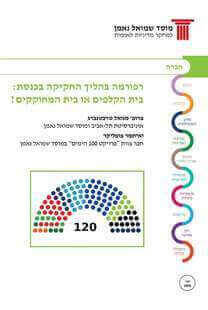
We lay out here a proposal for reforming the rules of the game that govern the behavior of the members of the Knesset (MK’s), in light of the diminished trust of the public in the Knesset. We identify three main failures: the lack of real debate, the fact that MK’s don’t seek wide consensus but […]
High tech nation and market driven economy
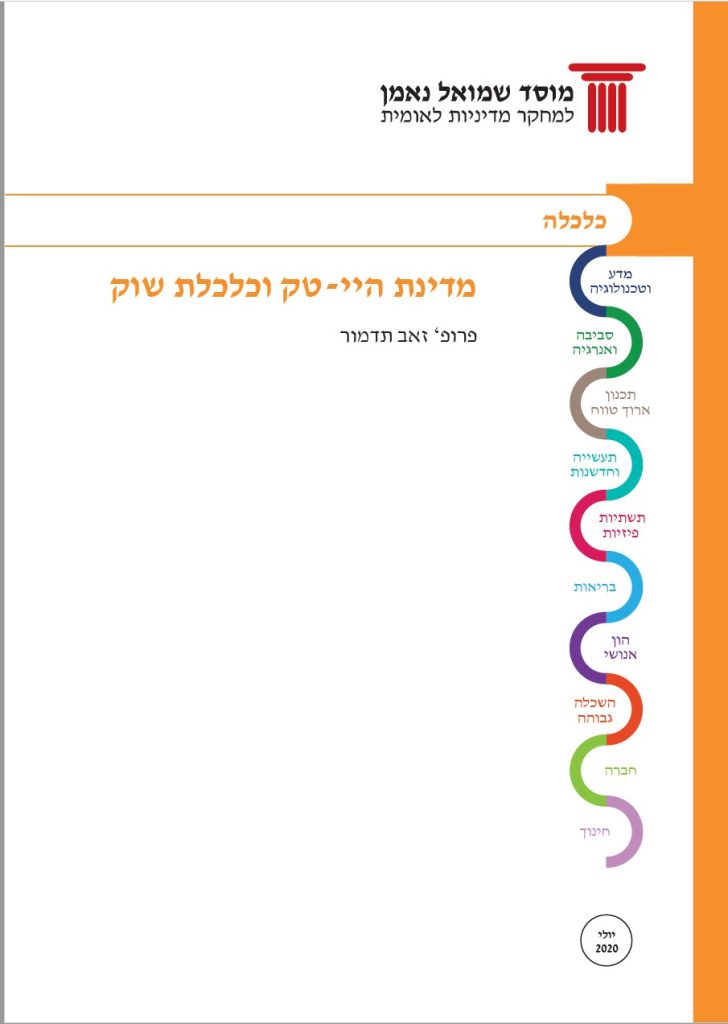
The paper posits that contrary to the common notion that the Israeli High-Tech industry is the consequence of the market-driven economy, in fact it is the results of far more profound reasons.
Save lives, save jobs
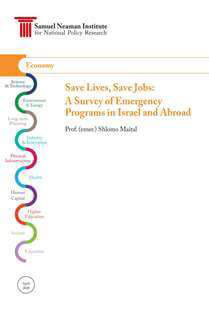
This essay surveys emergency economic bailout programs in the wake of the pandemic, including the Israeli program, at a cost of 80 billion shekels.
The Health System at a Roadcross
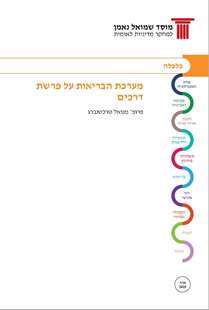
The health system in Israel has long suffered from the growing scarcity of hospital beds, long queues for tests and services, overworked medical personnel, and overcrowded emergency rooms – all of which attest to systemic problems that require an urgent response. The Corona crisis provides further proof that decades long under-investment in the public health system […]
To unravel the “Gordian Knot” 2.0: Tackling congestion via road pricing and shared rides
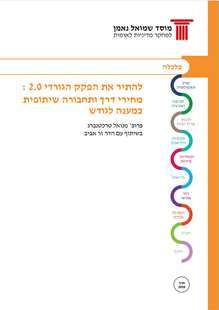
Israel’s chronic traffic congestion has become one of its most pressing problems, with dire economic, environmental and psychological consequences. Following years of failed transportation policies, which overtly favored private over public transportation, it is clear that Israel needs an altogether different approach. We propose here a three-prong policy: Traffic demand management through an advanced system of road pricing, […]
Violence, Crime and Policing in Arab Towns
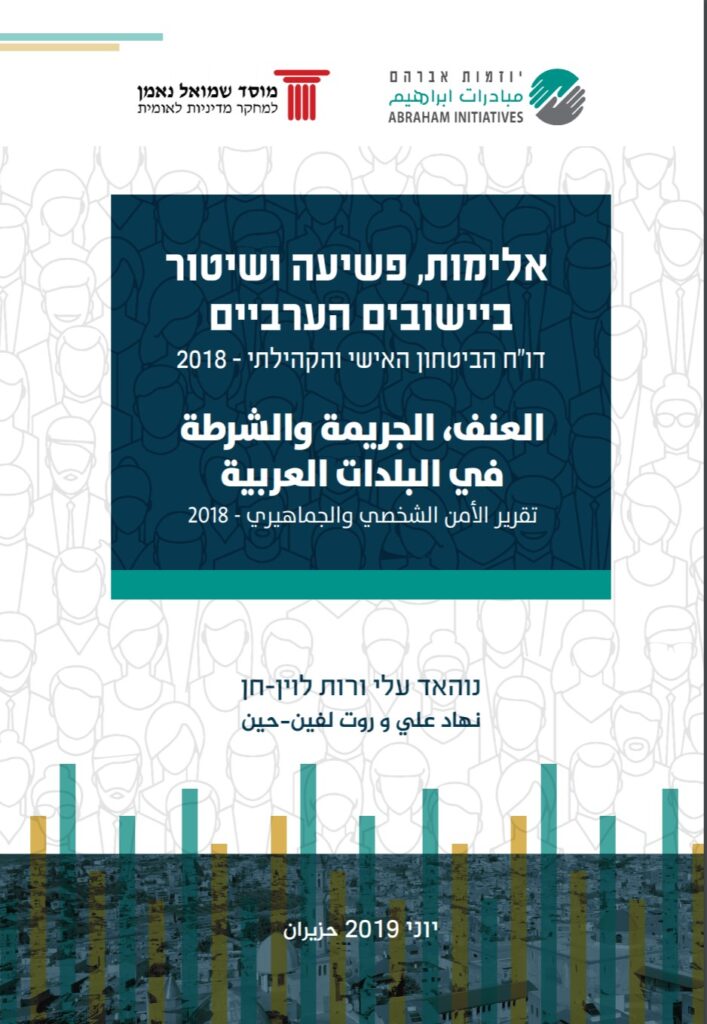
Link to the full publication In recent years, there has been a steep rise in the rates of crime and violence in Arab society. In 2018, 71 Arab civilians were killed. The proportion of those killed that year is 61%. 15 of those killed in Arab society – women. The main causes of violence […]
Characterization of knowledge transfer of Israeli universities based on indices of commercialization and technology transfer
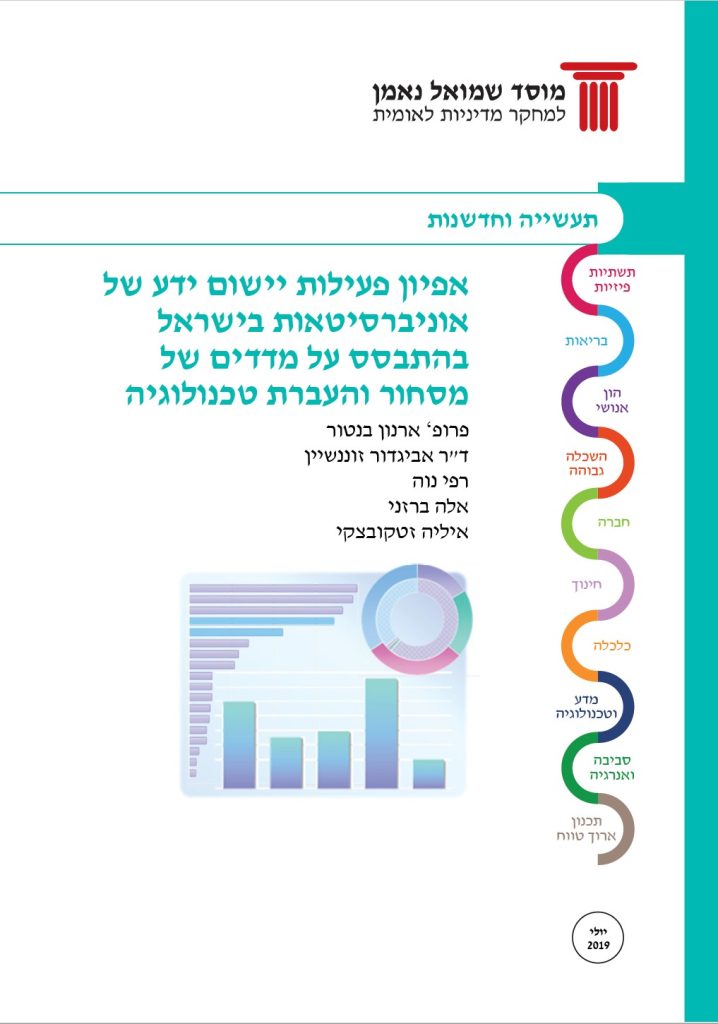
Review and critical evaluation of university-industry relations based on data and indicators of Israeli universities, in comparison with leading ones abroad. Development of insights regarding optimal policy steps to balance between technology commercialization and technology transfer, addressing the point of view of the well-being of society and national economy.
Towards a New Fiscal Policy for Israel: Balancing Budgetary Responsibility and Societal Needs
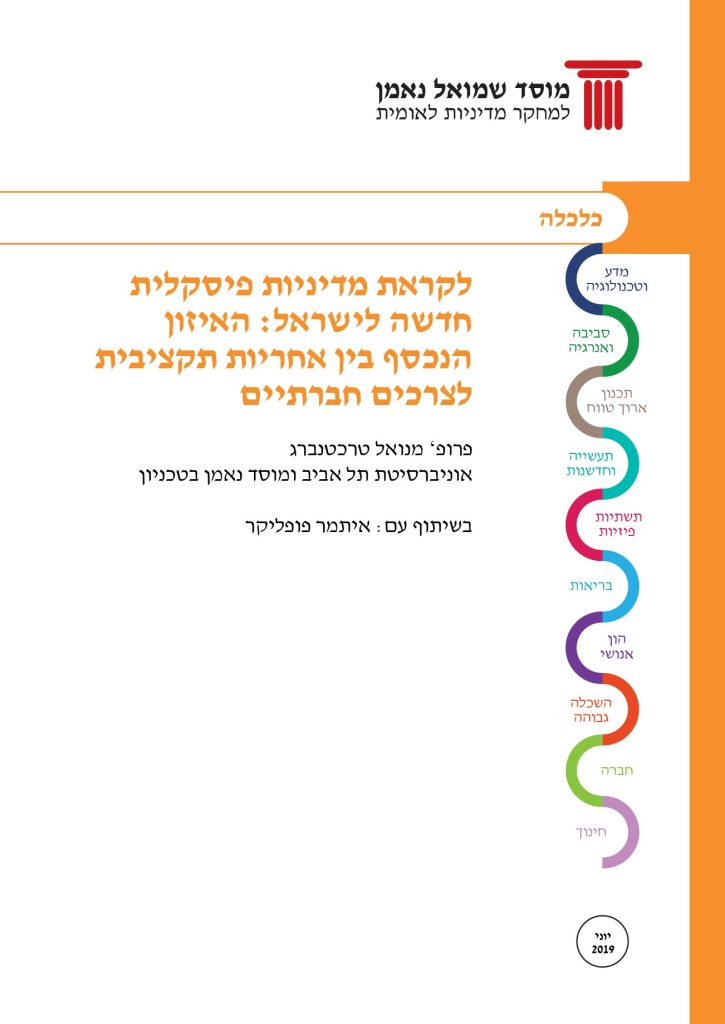
In this paper we put forward a new fiscal policy for Israel, intended to address the troubling gap between the remarkable success at the macro level of the prevalent economic policy, and the economic burden that weighs heavily on most households, especially on young families. The proposed policy strives to balance the two central functions […]
What is happening inside the Haredi Home – Review of several aspects concerning the every day life of Ultra Orthodox Jews in Israel
The report focuses on four aspects related to every-day life of Ultra-Orthodox Jews in Israel at present: Coping with economic pressure; Health, food and recreational habits; Use of internet, PC’s and private vehicles; Attitudes towards seculars. Data is based on external, recent, surveys. Based on the analysis of this data, it seems that presently, between […]
Assessment of greenhouse gas emissions intensity from electricity generation in Israel
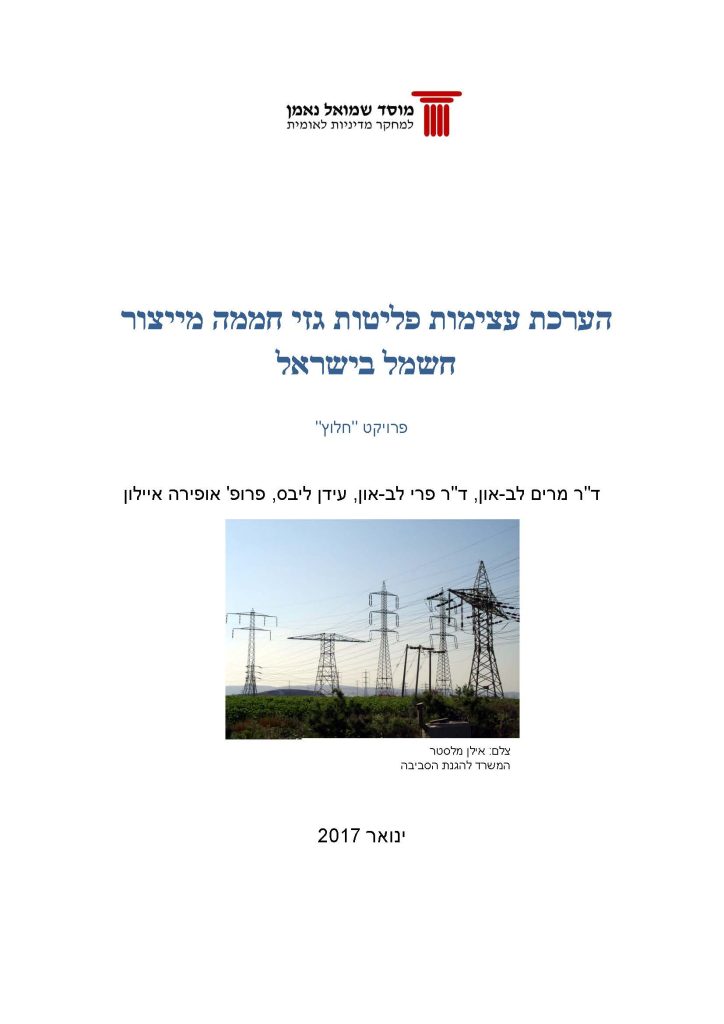
The Israeli energy market undergoes tremendous changes in recent years. While the vast majority of electricity was generated at Israel Electric Corporation’s (IEC) sites, in recent years independent power producers (IPP) are increasingly gaining market share. The fuel mix used for electricity generation in Israel in recent years has also radically shifted, with the natural […]
